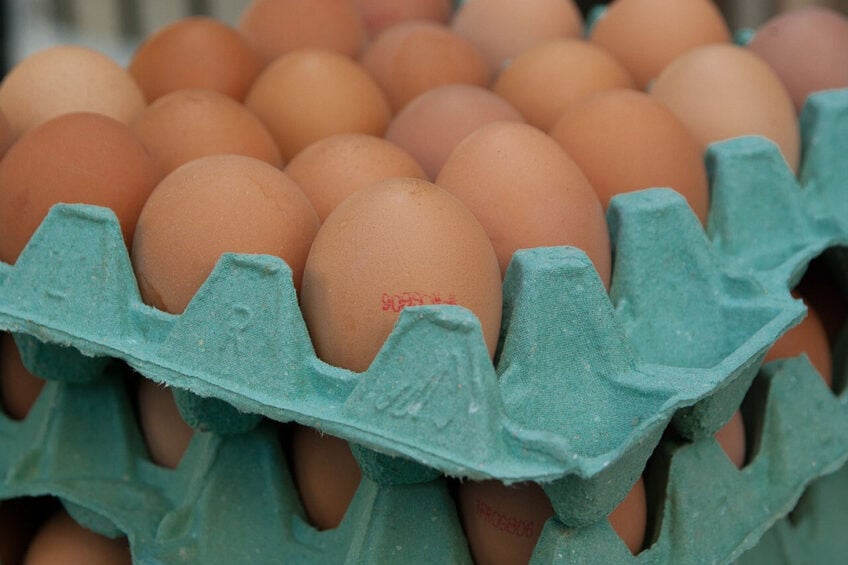May 21, 2025 | 03:28 GMT +7
May 21, 2025 | 03:28 GMT +7
Hotline: 0913.378.918
May 21, 2025 | 03:28 GMT +7
Hotline: 0913.378.918
According to them, it is all going too fast and will jeopardise the livelihoods of farmers.

At present, cage eggs still account for 50% of Australia's production. Photo: Jackmac34
Australian supermarket chains Coles and Woolworths announced 10 years ago that by 2025 they would stop selling cage eggs. Since then, the retailers have been gradually phasing out the sale of these eggs in collaboration with the producers involved. Other retailers and the hospitality industry also want to stop sourcing cage eggs.
At present, cage eggs still account for 50% of Australia’s production. But there is a lot of pressure from animal rights groups. Consumers also show increasing interest in improving animal welfare. An independent poultry welfare study found that it would be desirable to end the sale of cage eggs in the country by 2036.
The governments of the various states may require this, but poultry farmers are very concerned. Egg Farmers of Australia wants to delay the phasing out of cage eggs until 2046. “This will have a major impact on the livelihoods of today’s farmers who produce cage eggs. They will certainly demand compensation from the government in their state if the relevant minister of agriculture approves the recommendations of the study,” said the organisation’s CEO, Melinda Hashimoto.
Opposition from the poultry sector would not benefit the Woolworths and Coles supermarkets. There have been regular shortages of eggs in the last year and a half, and the price of free-range eggs has reached €5.5 per dozen for some brands. Egg price increases are related to the fact that the cost of feed has risen sharply. In addition, there were outbreaks of diseases in other countries, which increased imports and flooding of the domestic market.
The demand for cage eggs in Australia also remains high. Commercial Egg Farmers of South Australia and Tasmania spokesperson, Darren Latten, said that many consumers are looking for the lowest price available because they have less to spend. “And cage eggs are often the cheapest choice because they cost less to produce.”
Latten underlines that the price of wheat rose from €245 to €460 over the past 2 years. “We are on a rollercoaster,” he said. “Poultry farmers are not ready to phase out cage eggs. Such a step will lead to even greater shortages on supermarket shelves.”
Colin Ford, the owner of Albany Farm Fresh Eggs, a company that produces free-range eggs, says that a mandatory phase-out of cage eggs will result in many poultry farmers closing their businesses. “They are exclusively focused on intensive poultry production. The production of free-range eggs is completely uncharted territory for them.”
Chairman Bede Burke of Egg Farmers of Australia believes that poultry farmers should be given more time to phase out cage egg production for all these reasons. “The way things are going now, it is far too early to ban cage eggs,” he says. “This will ruin a lot of family businesses.”
(PW)

(VAN) Attempts to bring down the price of the Japanese staple have had little effect amid a cost-of-living crisis.

(VAN) Fourth most important food crop in peril as Latin America and Caribbean suffer from slow-onset climate disaster.

(VAN) Shifting market dynamics and the noise around new legislation has propelled Trouw Nutrition’s research around early life nutrition in poultry. Today, it continues to be a key area of research.

(VAN) India is concerned about its food security and the livelihoods of its farmers if more US food imports are allowed.

(VAN) FAO's Director-General emphasises the need to work together to transform agrifood systems.

(VAN) Europe is facing its worst outbreak of foot-and-mouth since the start of the century.

(VAN) The central authorities, in early April, released a 10-year plan for rural vitalization.